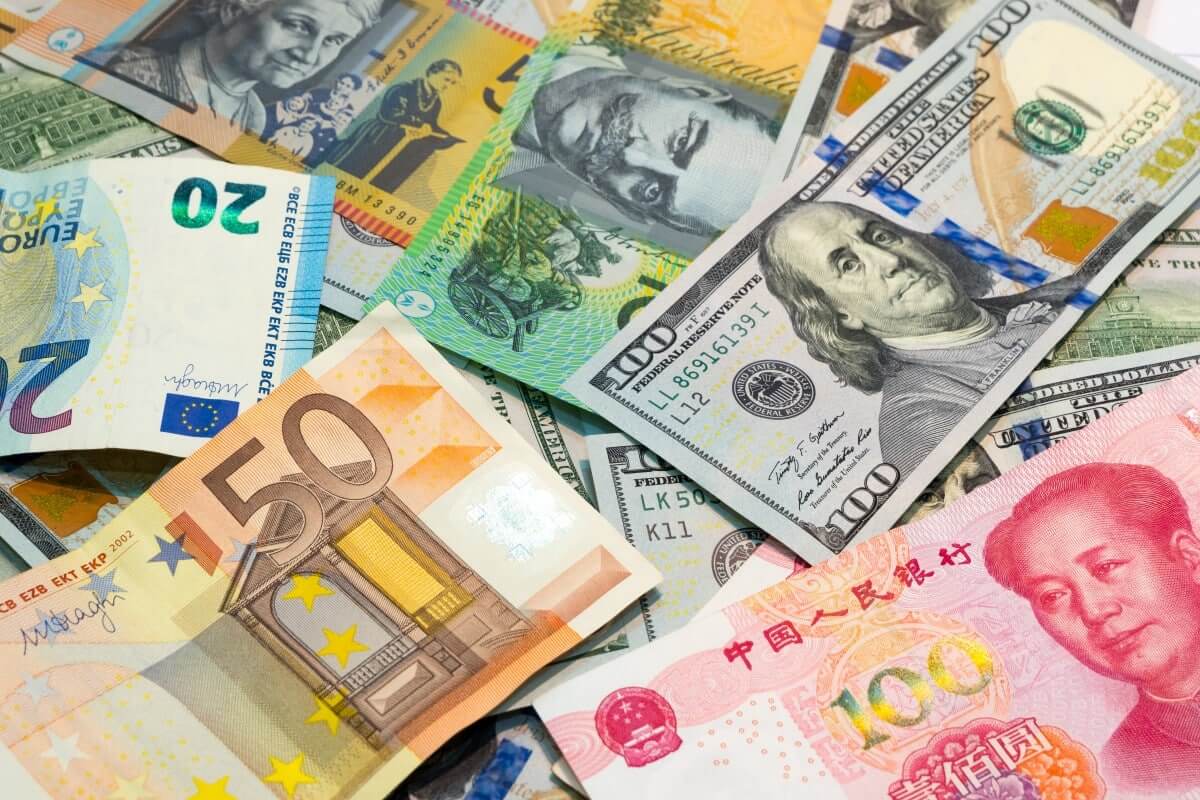
The U.S. dollar rallied on Wednesday. What about the Euro?
The greenback soared against most major currencies today. However, the euro plummeted by 0.14% to 1.072 U.S. dollars. The common currency skyrocketed to a 10-month peak of $1.103 on February 2. But it has struggled to stay strong since then.
On Wednesday, new data showed high inflation in the U.S. Federal Reserve officials commented on the monetary policy afterward. According to reports, U.S. consumer price index (CPI) inflation surged forward in January. Overall, it gained 0.5%, as analysts expected. That is partly due to higher food and rental costs. Moreover, prices jumped by 6.4% year-on-year. While the inflation number is lower compared to the 6.5% reached in December, it’s still higher than economists’ expectations of 6.2%.
Jane Foley, the head of FX strategy at Rabobank, noted that the euro’s surge is connected with the CPI data. Fed officials’ recent comments also influenced the currency. Traders are now expecting the Fed to continue rising, its interest rates, reaching a higher peak than they were contemplating a week ago.
The U.S. dollar index climbed by 0.25% on Wednesday. It exchanged hands at 103.51 today after ending the previous session flat.
How is the Japanese Yen faring?
The Yen plummeted by 0.2%, trading at 133.34 per USD at last. However, it collapsed to a six-week low at 133.44 earlier in the session. The dollar’s strength is weighing on the Japanese currency.
New York Fed President John Williams stated that with the bolstering labor market, there is a chance that inflation stays higher in the United States for longer than expected. That might force the central bank to hike rates higher.
According to Deutsche Bank’s economists, the agency might increase rates as high as 5.6%. They previously forecast a 5.1% peak, but that changed with the inflation report. The bank’s Chief U.S. Economist Matthew Luzzetti stated that inflation would probably remain too high over the coming months.
Meanwhile, the British Pound tumbled by 0.79% to $1.208 on Wednesday. The data showed that British inflation lowered more than analysts expected. In January, it dropped to 10.1%. This was welcome news for the Bank of England as it could moderate its rate hiking.
On Wednesday, the Australian dollar dropped by 1.2%, trading at $0.69. Australia’s central bank chief Philip Lowe, announced that the country needed to deliver more rate hikes. China’s onshore yuan also traded in the red. It plunged to a more than one-month low at $6.8498. The currency traded at $6.839 at last.
Some traders focused on Scottish First Minister Nicola Sturgeon. She said she contemplated stepping down. Sturgeon has been doing this job for eight years. So, this change will likely influence the country’s currency.
What about the EM currencies?
On Wednesday, most Asian EM currencies plummeted to their lowest level in more than a month. The firm dollar weighed on them. Consequently, the Malaysian ringgit dropped by 0.8% today. The currency hit its weakest point since January 9. At the same time, the Thai baht shaved off 0.7%, also reaching its lowest point since January 12.
Meantime, the Indian rupee declined by 0.2%. Like its peers, the currency ended up at its lowest level in more than a month. According to Fed officials, the central bank might need to continue gradually hiking interest rates to hinder soaring inflation. Investors have priced in a 25 basis-point rate increase in March.
Clifford Bennett, the chief economist at ACY Securities, noted that the Federal Reserve made a mistake by moving on 25-bp increases too early. Such an approach will only elongate the agency’s current tightening cycle. Moreover, as the Fed continues to rise rates, it will wear on business, consumer, and investment nerves. Some analysts also fear that it might cause an economic recession.
In Asia, equities decreased today, along with most currencies. South Korean stocks fell by 1.6%, suffering the most substantial losses. Taiwanese shares also plummeted by 1.4%.
On Tuesday, Singapore’s finance minister, Lawrence Wong, stated that there might be a slight deficit of 0.1% of the gross domestic product for this year’s budget. According to him, the government would use it to help households relieve the pressures of increasing living costs.
Singapore’s economy is struggling this year due to slowing global growth, as well as inflation and higher interest rates. Today, Singapore’s dollar declined by 0.4%, while equities dropped by 1.2%.




